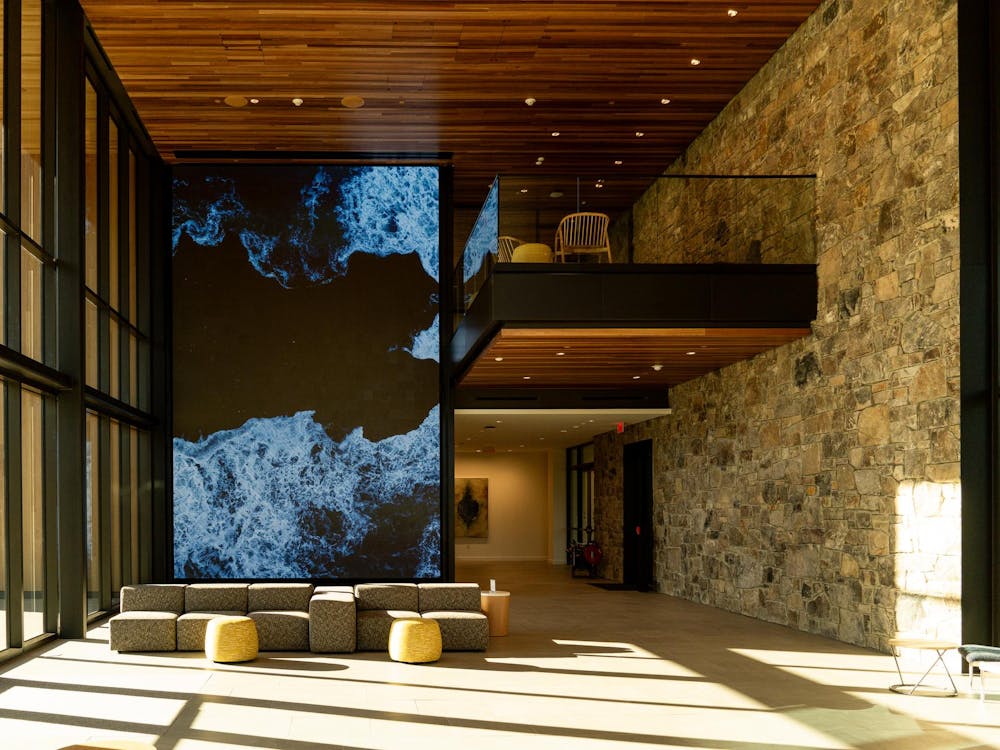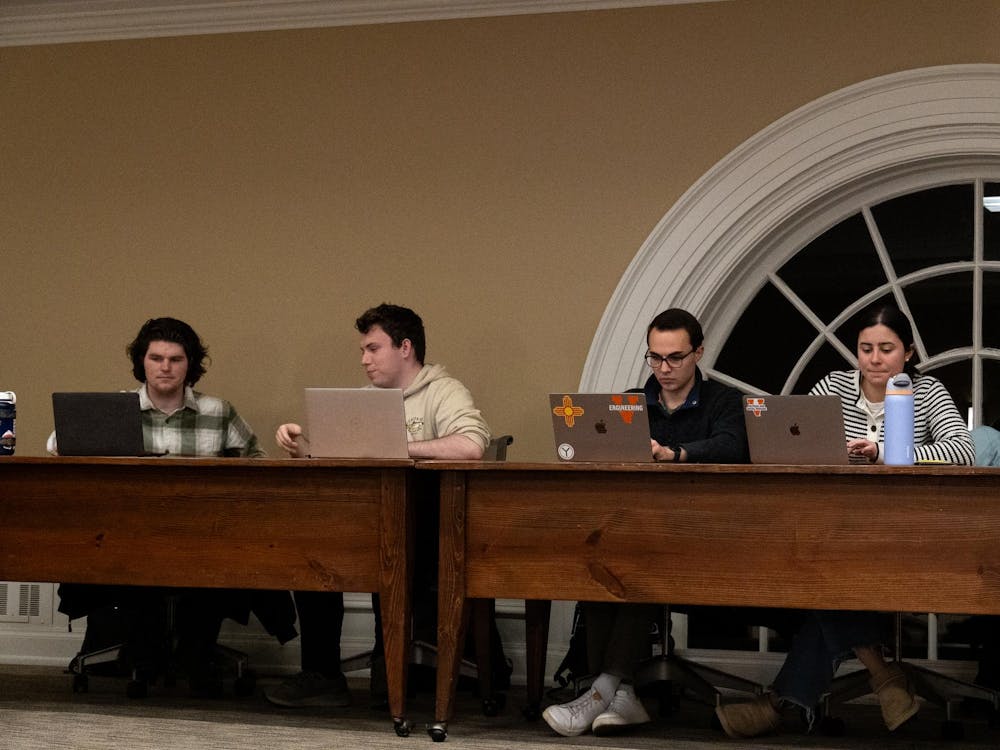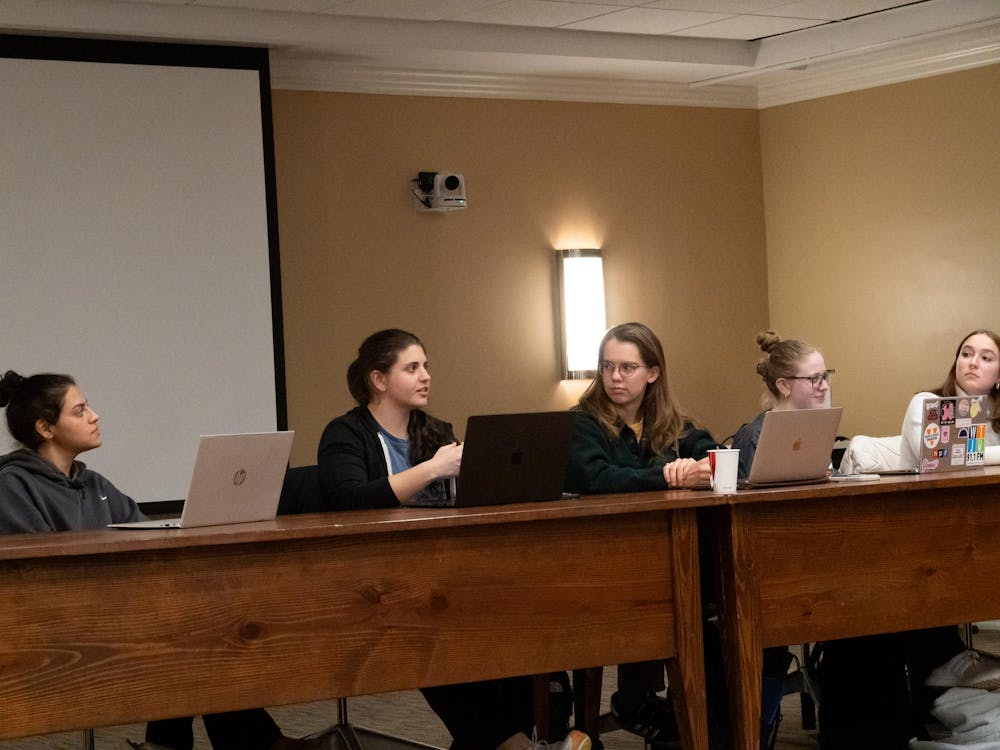More than 60 percent of undergraduate students who support a major party candidate report choosing to do so in opposition to the other candidate, according to a survey conducted by The Cavalier Daily, in partnership with a faculty advisory committee and the Center for Survey Research.
The survey asked students supporting major party candidates about the reasons for their support.
Sixty-five percent of respondents supporting Republican nominee Donald Trump over Democratic nominee Hillary Clinton said the main reason they are doing so is to “oppose Clinton.” Of the respondents voting for Clinton, 61 percent of respondents are voting for her because they “oppose Trump.”
Of Clinton’s supporters, 12 percent support her because she is the Democratic Party nominee, while 21 percent of Trump voters support Trump as the Republican Party nominee. Only 14 percent of Trump voters said they support Trump because they like him, compared to 27 percent of Clinton supporters.
Fourth-year Engineering student Paul Kim will be casting his vote for Trump in the upcoming election, and said he chose to do so out of dislike for Clinton.
“I’m not happy about voting for either of them,” Kim said. “It’s a product of me really not liking the other candidate.”
The large number of students casting votes for candidates in opposition to the other major-party nominee may reflect a “lesser of two evils” situation in which student voters are unhappy with their choices.
“I’d just say their moral character is so in question,” Kim said.
Some students who supported other candidates in the party primaries expressed discontent with their current party nominee.
“I would have gladly voted for anybody else on the Republican ballot,” first-year College student Katherine Welsch-Lehmann said. “[Trump] is the one I can’t be happy with.”
Hirschfeld described Trump as “the worst candidate we could have possibly picked.”
“I think to myself a lot … we [had] 17 qualified candidates, and we picked the most controversial, the most fire-branded, the most outrageous candidate,” first-year College student Tanner Hirschfeld said.

Second-year Engineering student Raisa Noshin said she is casting her vote for Clinton.
“As much as I personally would love a different person to pick, I have to go with her because she’s the only other option [besides Trump],” Noshin said.
Although over two-thirds of students polled said they feel somewhat or very comfortable talking about the election with other students, some students say the polarization between the Democratic and Republican parties has affected the way students interact with their peers.
“I do really think this election is definitely more polarized,” Noshin said. Instead of discussing policy, supports “just name-call each other’s candidates,” she added.
Some students said they avoid conversations about politics because the conversations quickly turn into arguments.

“I’ve had experiences with people [in the past] who disagree with me on a lot of levels … and we talk about what we disagree with,” Welsch-Lehmann said. “People think just disagreeing with them is a personal attack on them … instead of discourse and exchange of ideas, it turns into a fight.”
Some students said they feel the increased polarization results in a lack of middle ground between the candidates.
“I do not engage in political conversation,” second-year College student Sydney Bradley said, “because there is no middle ground, so if you argue with someone you’re not going to be able to change their mind.” Bradley also noted such discussions become “an argument instead of a conversation.”
Bradley will be casting her vote for Clinton.
“I feel like we’ve lost that ‘we can agree to disagree’ [mentality],” Hirschfeld said. “I feel like it’s frustrating because people are so polarized and so angry and so upset.”
For more information on polling methodology, click here.





